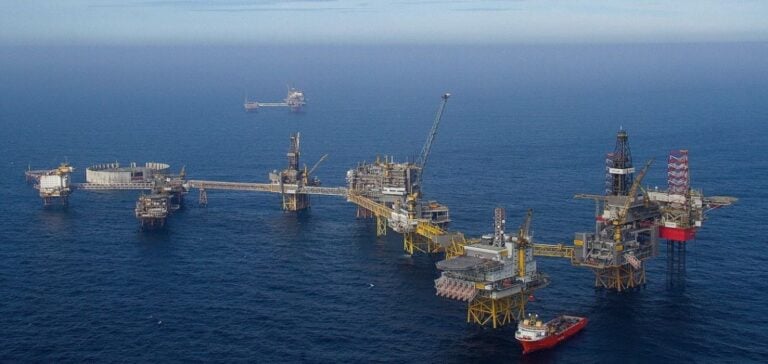Harbour Energy, one of the UK’s leading oil and gas producers, announces substantial progress on its project to connect Talbot to the J-Area hub in the North Sea.
The project is expected to recover around 18 million barrels of oil equivalent (boe) over a 16-year period, contributing to increased volumes of Ekofisk blend, transported via the Norpipe pipeline to Teesside.
The company also reported a 19% reduction in UK production in the first half of 2024, to 149,000 barrels per day (b/d) oil equivalent.
This reduction is due to planned maintenance operations, including a temporary shutdown in June in the J-Area, which impacted the flow of oil and gas to Teesside.
Harbour Energy is planning a 40-day shutdown at the Britannia hub from August, which will affect flows to the Forties blend.
At the same time, a four-week shutdown of the SAGE gas pipeline is scheduled from August 27, further influencing production.
Despite these disruptions, the company says that its maintenance and investment projects in the UK remain on track, with an increase in production expected in the fourth quarter.
International diversification and strategic acquisitions
In response to perceived high UK taxes, Harbour Energy is pursuing its diversification strategy outside the UK.
The company recently added 10,000 boe/d of production in Indonesia and Vietnam in the first half of 2024.
In Mexico, engineering work has begun on the Zama oil project, with an estimated capacity of 700 million barrels of light oil. Following the acquisition of the Wintershall Dea assets, Harbour Energy is set to increase its stake in Zama from 12% to 32%, thereby strengthening its international portfolio.
Linda Cook, CEO of Harbour Energy, says this acquisition is key to increasing the geographic diversity and longevity of their portfolio, while consolidating their capital structure.
Oil prices are being closely monitored, with Platts Dated Brent valued at USD 79.91 per barrel as of August 8, up USD 3.64 on the day.






















